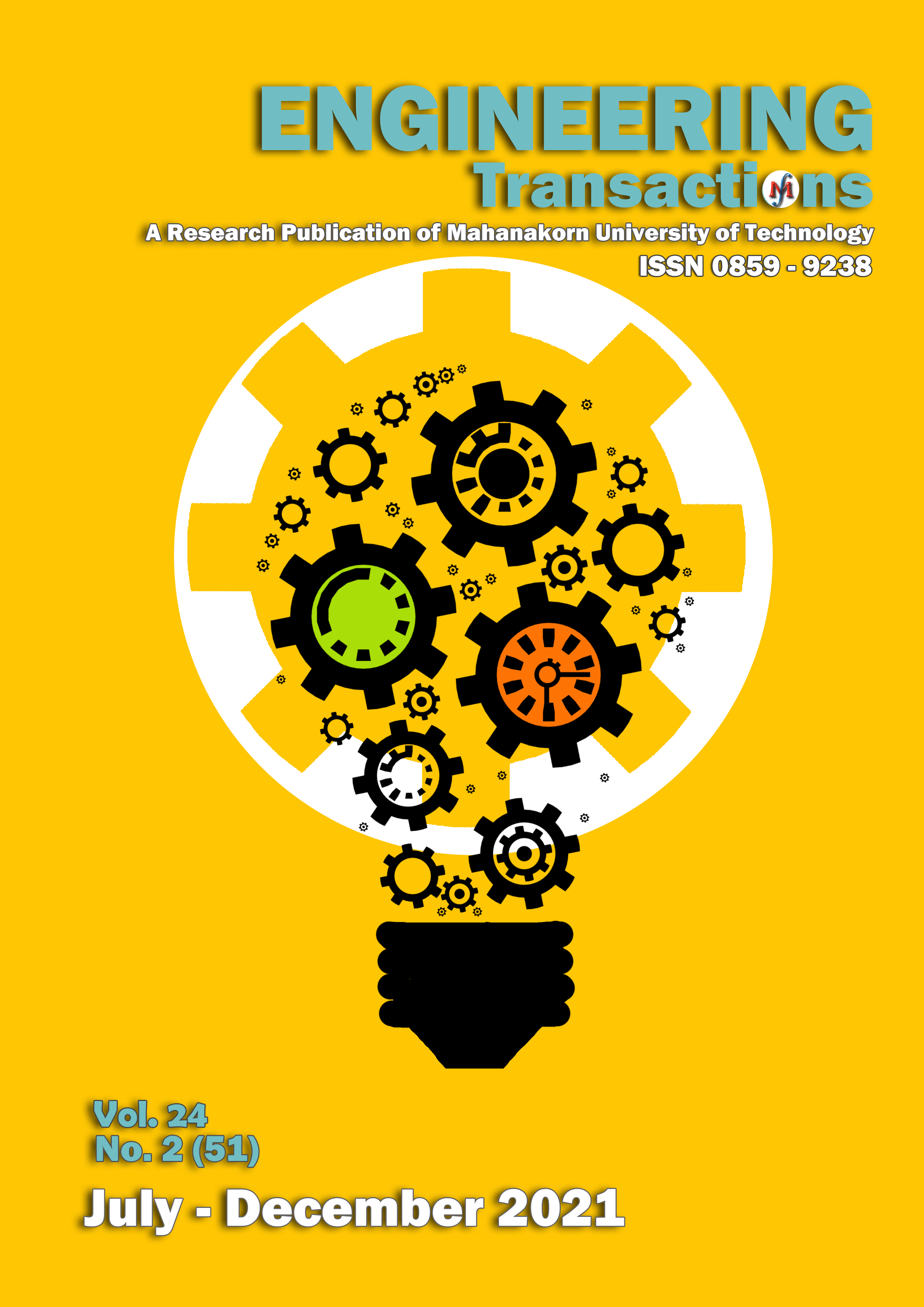Laboratory Development of Outcome-based Learning on Data Communication
Main Article Content
Abstract
This paper presents the laboratory development of the course of data communication using the outcome-based learning. The objective of this paper is to make the engineering students understand the sequence and procedure of basic data communication that is the basic concept for the course of computer network and administration. Packet sniffer in real time is a tool used in order to sniff the data from application used including with the standard format of data frame in traffic through the internet. Moreover, network simulator is used for a small network to make students understand the necessary parameters such as IP address, subnet mask, default gateway and DNS server, that students can apply to connect and set up the network in daily life. Development of laboratory course design shows that students can see the data flow of data communication. The learning outcome evaluation in laboratory shows that the number of student’s score more than 50% is increased in data communication course and class average of the course of computer network and administration is higher than last year. Results show that the development of laboratory content is the foundation of knowledge for learning advanced courses.
Article Details
Copyright @2021 Engineering Transactions: A Research Publication of Mahanakorn University of Technology
Faculty of Engineering and Technology
Mahanakorn University of Technology
References
[2] Lyle D. Feisel, albert J. Rosa, “The Role of the Laboratory in Undergraduate Engineering Education”, Journal of Engineering Education, January 2005.
[3] ประสูตร เดชสุวรรณ, “การพัฒนาการเรียนรู้แบบ Outcome-based education ในรายวิชาการวิเคราะห์วงจรไฟฟ้าของคณะวิศวกรรมศาสตร์ มหาวิทยาลัยเทคโนโลยีมหานคร”, Engineering Transactions (Group B), Vol.20, No.2(43), July-Dec-2017
[4] ประสูตร เดชสุวรรณ, “การศึกษาที่มุ่งผลลัพธ์โดยใช้การวัดผลลัพธ์แบบ KAPIS สำหรับรายวิชาการวิเคราะห์วงจรไฟฟ้าของคณะวิศวกรรมศาตร์ มหาวิทยาลัยเทคโนโลยีมหานคร”, Engineering Transaction (Group B), Vol. 21, No. 1(44), Jan-Jun, 2018.
[5] สุริยา วิทยาประดิษฐ์, “รูปแบบการสอนตามแนวทางการศึกษามุ่งผลลัพธ์เป็นฐานสำหรับวิชาอิเล็กทรอนิกส์ชีวแพทย์ของมหาวิทยาลัยเทคโนโลยีมหานคร”, Engineering Transaction (Group B), Vol. 21, No. 1(44), Jan-Jun, 2018.
[6] เอกสารกรอบคุณวุฒิแห่งชาติ NQF ฉบับปรับปรุง พ.ศ. 2560. [Online] http://ir.rmutsv.ac.th/content/2017/07/24-519. [สืบค้นวันที่ 18 สิงหาคม 2564].
[7] Spady, W. G., “Outcome-based education: Critical issues and answers”, Arlington, VA: American Association of School Administrators, 1994.


